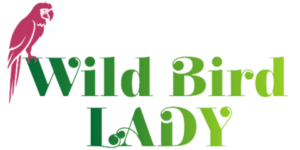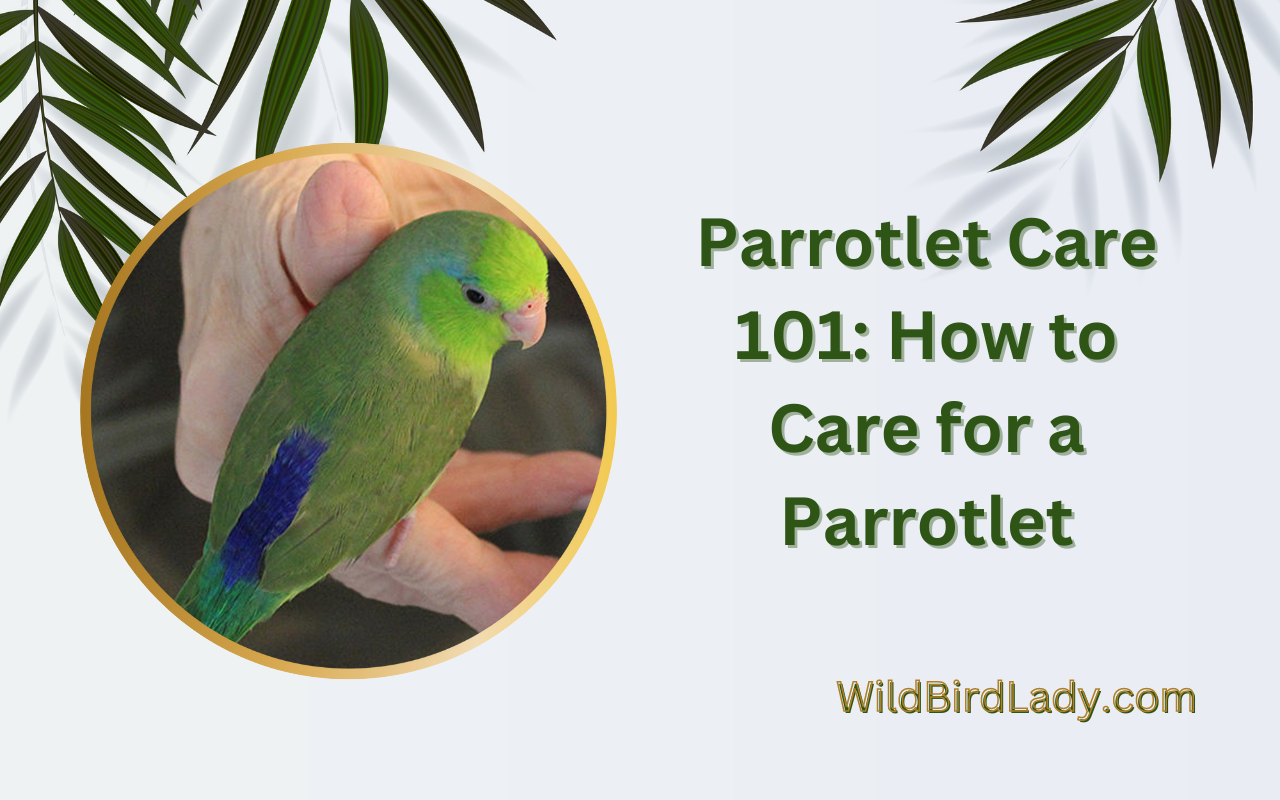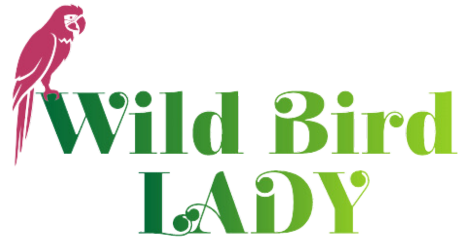Parrotlets are intelligent and active birds that require plenty of attention and socialization. To care for a parrotlet, you must provide it with a spacious cage, a healthy diet, frequent exercise, and mental stimulation.
Parrotlets are small, colorful birds that make great companions for those who are willing to invest time and effort in their care. Though they are intelligent and sociable, they can also be demanding pets that require plenty of attention and stimulation to thrive.
If you’re considering getting a parrotlet, it’s essential to research their care requirements and ensure you can provide them with a suitable environment. This article will provide an overview of what you need to know to care for parrotlet, from their diet and housing needs to their exercise and socialization requirements. By following these guidelines, you can ensure that your parrotlet remains healthy, happy, and well-adjusted as a member of your household.

Credit: parrotjunkie.com
Setting Up The Perfect Home For Your Parrotlet
Parrotlets are playful and energetic little birds that require a safe and comfortable habitat to thrive. Below are some essential tips you should consider when setting up the perfect home for your parrotlet:
Choosing The Right Cage and Location
Choosing the perfect cage and location for your parrotlet is crucial to keeping them happy and healthy. Here are some key points to consider:
- The cage should be big enough for your parrotlet to fly and move around comfortably. A good rule of thumb is to select a cage at least 18 x 18 x 18 inches.
- Ensure the cage is made of sturdy materials and easy to clean. Powder-coated steel or stainless steel is the best material for cages.
- The cage should be kept in an area that is not too hot, cold, or drafty. Parrotlets prefer a consistent temperature range of 65-85°f. Make sure the cage is not exposed to direct sunlight or next to a heating or cooling vent.
Cage Accessories and Toys
Enriching your parrotlet’s environment with toys and accessories can help keep them mentally stimulated and engaged. Here are some essential items to consider:
- Provide perches of varying sizes and textures for your parrotlet to sit and climb on.
- Offer a variety of toys that can be swung, chewed, and manipulated, such as bells, swings, and ropes. Remember to rotate the toys regularly to prevent boredom.
- Include a bird bath or misting device to provide a source of water for your parrotlet to play in and keep clean.
Proper Cleaning And Maintenance Of The Cage
Keeping your parrotlet’s cage clean is critical in preventing the spread of disease and maintaining their overall health. Here are some tips for proper cleaning and maintenance:
- Clean the cage and accessories regularly with hot, soapy water. Rinse thoroughly and allow them to dry before being returned to the cage.
- Replace soiled bedding or paper lining frequently and clean up any waste or food scraps daily.
- Regularly inspect the cage and accessories for any signs of wear or damage. Replace any broken or frayed items to prevent injury to your parrotlet.
Properly setting up your parrotlet’s home is crucial to their overall well-being. By following these tips, you can ensure that your feathered friend has a safe, comfortable, and stimulating environment to thrive.
Ensuring A Healthy Diet for Your Parrotlet
The Importance Of A Balanced Diet
Parrotlets are small, energetic birds that require a balanced diet to keep them happy and healthy. A well-rounded diet boosts their immune system and reduces the risk of several health issues. Here are some points that emphasize the importance of a balanced diet for your parrotlet:
- A balanced diet helps maintain healthy feather growth, minimizing feather loss
- A healthy diet improves their immune system, helping to fight off harmful diseases
- It helps regulate their digestive system, reduce the risk of diarrhea or constipation
Recommended Foods For Parrotlets
Parrotlets require a variety of nutrients that can be obtained from various foods. A balanced diet for parrotlets should include a blend of fruits, vegetables, and grains. Here are some foods you should consider feeding your pet:
- Pellets: A quality pellet mix can fulfill a parrotlet’s daily nutritional needs.
- Fresh fruits and vegetables are the best sources of vitamins, minerals, and fiber. It’s best to offer them in small amounts.
- Cooked grains: Parrotlets enjoy cooked grains such as brown rice, quinoa, and millet.
- Nuts and seeds: Nuts and seeds are nutritious, but feeding them in moderation is essential.
Limiting Unsafe Foods To Avoid Health Risks
While there are plenty of healthy foods parrotlets can eat, it’s essential to avoid certain foods that can be toxic or harmful to your pet. Here are some foods to avoid:
- Chocolate: A chemical in chocolate, theobromine, is toxic to birds.
- Avocado: Avocado has a toxin called persin that can be fatal to parrotlets.
- Alcohol: Alcohol can lead to severe health issues or even death in birds.
- Caffeine: Caffeine is a stimulant that can cause restlessness, hyperactivity, and even fatal heart arrhythmias in birds.
Following these guidelines ensures that your parrotlet enjoys a well-balanced, nutritious diet that keeps them healthy and happy.
Keeping Your Parrotlet Healthy
Keeping your parrotlet healthy is crucial to ensuring your feathered friend’s long and happy life. Several aspects of care are essential for your parrotlet’s well-being, from daily grooming routines to providing exercise and stimulation. Here’s what you need to know:
Daily Grooming And Hygiene Routines
- Clean your parrotlet’s water and food bowls daily
- Change bedding material in their cage regularly
- Provide plenty of fresh water for them to drink from
- Take note of their feather condition and clean them if necessary
- Trim their nails and beak using specialized parrotlet grooming tools
Maintaining a daily routine for grooming and hygiene is essential to keeping your parrotlet healthy. As they spend most of their time in their cage, you must ensure it is clean and debris-free. Regularly checking and cleaning their water and food bowls is critical to prevent bacterial growth.
If you notice any issues with their feathers, it’s important to address it immediately to keep them in top condition. Finally, be sure to keep their nails trimmed to prevent injury and their beak filed to aid in proper eating.
The Importance Of Exercise And Stimulation
- Provide toys and perches of varying sizes and textures to keep them active
- Allow for ample flying time outside of their cage
- Encourage socialization with humans and other birds
- Provide foraging opportunities to keep their minds active
Parrotlets require plenty of physical and mental stimulation to prevent boredom and aggression. Providing ample toys and perches of varying sizes and textures will keep them physically active in their cage. Allowing your parrotlet to fly around will also provide essential exercise.
Socializing with your parrotlet can help prevent boredom and keep them mentally stimulated. Finally, foraging opportunities can help keep their minds active, encouraging them to seek food rather than just eating from a bowl.
Common Health Concerns And Warning Signs
- Watch for signs of respiratory distress, including wheezing and coughing
- Keep an eye out for changes in appetite or feces
- Check for any abnormal swelling or lumps
- Monitor for changes in behavior, including aggression or lethargy
- Seek veterinary care immediately if any of these symptoms present
While parrotlets are relatively hardy birds, they are susceptible to common avian health issues like respiratory distress or digestive problems. Be sure to monitor your parrotlet’s behavior regularly to detect any early signs of illness. Changes in appetite, feces, or behavior should be noted and monitored, and a qualified avian veterinarian should address any concerns.
By following these care tips, you can ensure that your parrotlet stays healthy for years to come. As always, keep a close eye on your feathered friend, and don’t hesitate to seek professional help if you have concerns.
Training And Interacting With Your Parrotlet
Parrotlet Care 101: What You Need To Know
Parrotlets are tiny birds known for their playful and affectionate nature. It’s essential to give them the care and attention they need to keep them healthy, happy and live a long life. Training and interacting with your parrotlet is crucial to building a long-lasting bond between you and your feathered friend.
Here’s what you need to know about it:
Importance Of Training And Bonding
Training and bonding with your parrotlet need to begin from the moment you bring it home. Here are the reasons why:
- It helps socialize your bird: Parrotlets are social beings, and training helps socialize them with humans and other animals.
- It strengthens the bond between you and your bird: Spending quality time with your parrotlet, training them, and playing with them helps build a bond.
- It helps in preventing behavioral problems: Regular training helps in preventing common behavioral issues seen in parrotlets, such as aggression, destructive behavior, and screaming.
Positive Reinforcement Techniques
Parrotlets respond well to positive reinforcement techniques. Here are some ways to use these techniques to train your parrotlet:
- Use treats: Positive reinforcement techniques involve the use of rewards such as treats, toys, and praise when your bird exhibits good behavior or correctly performs a task.
- Clicker training: Clicker training involves using a clicker to signal a correct behavior or action performed by your bird, followed by giving a reward.
- Consistency is key: Parrotlets respond best to positive reinforcement when delivered consistently, in a calm and supportive tone.
Understanding Parrotlet Body Language
Understanding your parrotlet’s body language is essential to ensure you bond better with your bird. Here are some body language cues to look for:
- Fluffing up: Fluffing up means your parrotlet is feeling comfortable and relaxed.
- Puffing up: Puffing up with feathers, on the other hand, could mean a warning of being aggressive or scared.
- Head bobbing: A head bobbing gesture is a sign that your parrotlet is happy, lively, and excited.
- Wing flapping could indicate that your parrotlet wants to exercise or play.
Training and interacting with your parrotlet are crucial to building a strong bond. Positive reinforcement techniques, consistency, and understanding body language are key steps to help you achieve that. Remember, with proper training, patience, and attention, your parrotlet will be a loving and delightful addition to your family.
Frequently Asked Questions
Are Parrotlets Good Pets For Apartments?
Parrotlets are great apartment pets due to their small size and low noise levels. They require minimal space but still provide all the love and affection you would expect from a larger bird.
Can I Train My Parrotlet To Talk?
While parrotlets are known for their vocalizations, not all parrotlets can talk. However, hand-raised parrotlets tend to be more sociable and may be more likely to learn phrases and words. Repetition, patience, and positive reinforcement are key to teaching talking.
How Do I Keep My Parrotlet Healthy?
To keep your parrotlet healthy, make sure to provide them with a balanced diet, fresh water, and daily exercise. Keep their cage clean and provide enough space for them to move around. Regular visits to an avian veterinarian are also recommended.
Can Parrotlets Live Alone?
Parrotlets are social birds and can live alone, but they are recommended to have companionship or lots of interaction with their owners. Consider getting a second parrotlet or providing plenty of toys and attention to keep your bird happy and healthy.
How Do I Maintain My Parrotlet’s Feathers?
Parrotlets groom themselves, but sometimes they need a little extra help. Provide them with fresh water for bathing and a perch or toy for preening. Avoid over-bathing your bird, as it can strip its feathers of natural oils. Regular feather trimming by a professional is also recommended.
Conclusion
Overall, taking care of a parrotlet can be a rewarding experience for any pet owner. These small birds are full of personality and can make great companions. It’s essential to remember that parrotlets require proper care and attention to thrive.
Providing them with a balanced diet, a safe living space, and regular interactions can keep them happy and healthy. As a pet owner, it’s also important to understand their behavior and potential health issues to catch any problems early on.
While it may take some patience and effort, the love and affection you receive from your parrotlet make it all worth it. By following the tips outlined in this guide, you’ll be able to provide the best care possible for your feathered friend.
Latest Posts
The Ultimate List: Top 8 Best Birdwatching Podcasts for Avid Birders
Looking for the top birdwatching podcasts? Here are the eight best options to tune into today! Birdwatching can be a thrilling, immersive experience that brings...
Stop Squirrels in Their Tracks: 10 Effective Ways to Safeguard Your Bird Feeder Pole
To prevent squirrels from climbing your bird feeder pole, use squirrel baffles and slippery poles. Here are ten effective ways to keep squirrels from stealing bird food and damaging bird feeders. ...


